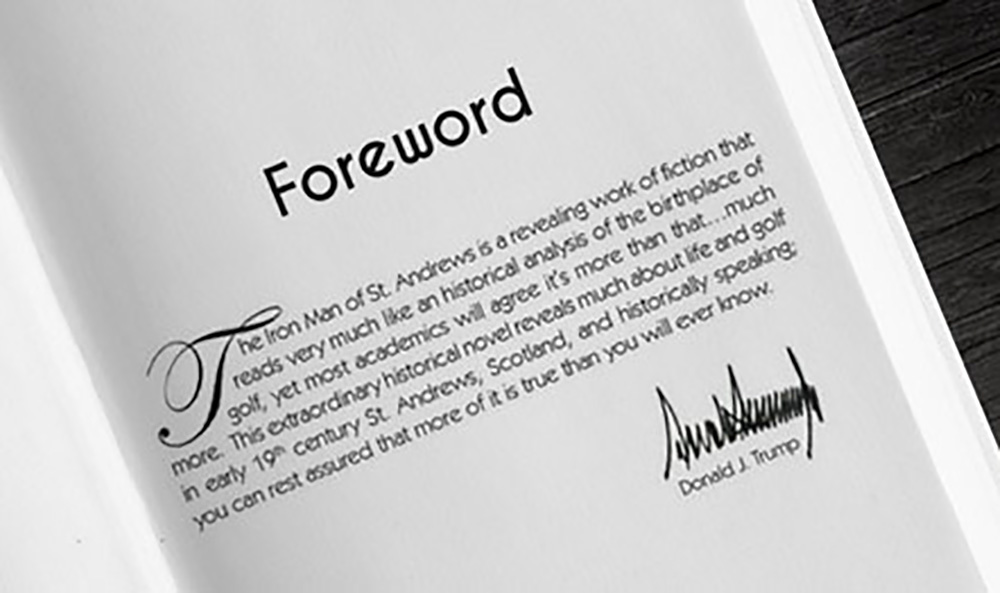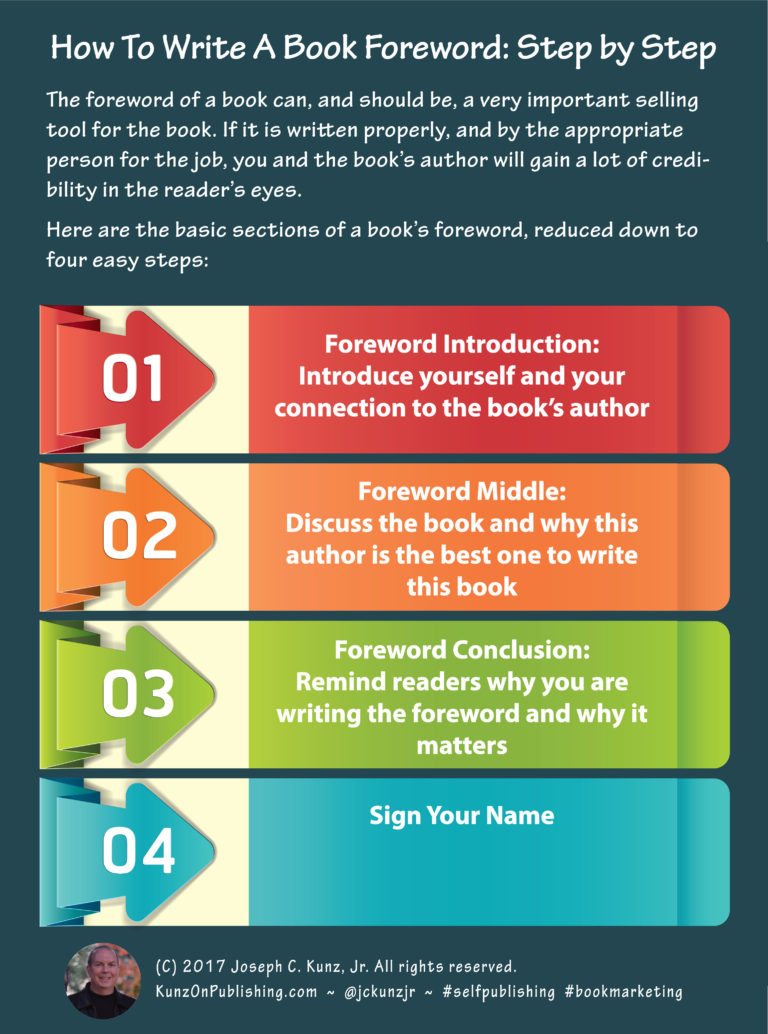Thinking of putting a foreword on your book but doesn’t know how or where to start? Let us break it down for you in this post.
What is Foreword?
A foreword is a short introductory portion of a book, typically written by someone other than the author. The writer of the foreword offers his or her integrity and credibility to the author, convincing others to read the book.
In this section, the writer of your foreword describes the connection you have with your newly-written book.
It can also contain some funny anecdotes about the author, or specific reasons why the book must be read and purchased.
The subject of the foreword may vary, but if there is one a foreword should not contain, it’s detailed information about the book itself.
If your foreword already contains the very plot of the book, then your readers won’t bother finishing it!
Think of your foreword as a sort of teaser. But instead of you writing about it, you let somebody else who read the book do it for you.
Why do You Need a Foreword?
It’s an Essential Marketing Tool
With millions of books in the market, you have to make sure that your book gets a chance in the spotlight.
There are a lot of marketing strategies to promote your book, such as establishing social media presence, making a beautiful book mockup, generating a landing page, and so on.
Having a beautifully-written foreword is a marketing strategy as well. A perfectly-written foreword can be a big deciding factor for your readers if they should purchase it or not, especially if it is written by the right person.
It Establishes Your Credibility as an Author
Your foreword should explain why your perspective about the book’s subject is worth their money and time.
Since the foreword details the connection between the author and the book, your readers will know why your book, out of all others in the same genre, is a must-read, and why you, as an author, should be given attention.
This is especially important to up-and-coming writers. With their names still mostly unknown, they have to let their readers know what makes them and their books unique, so they can stand out among all the other prominent authors and writers in the industry.
A foreword has that much power, so don’t downplay its presence in your book.
It Clarifies the Value of the Book to the Reader
A reader often has these few questions in their mind before they buy a book:
■ What will they get by reading the book?
■ How could the book satisfy them and their goals?
■ What makes the book more comprehensive and useful than others?
By addressing these questions in your foreword, your readers will get a complete sense of its value. If they’re on the fence at first, reading your foreword will make them trust you and the value of your book.
A plot summary can do so much to get your book recognized. There are thousands of books in every genre, and you can’t establish the value of your book with just the plot summary alone.
Your readers and audience should already be briefed and informed about your book’s value, which is, of course, found in the foreword. If they think your book answers any questions they might have, then they would most likely purchase it!
Who Should Write the Foreword for You?
In securing a foreword for your book, you need someone reliable and well-known to write it for you. Getting an industry guru, media celebrity or notable VIP as a writer of the foreword is an excellent way to obtain instant validation for your book.
The more widespread appeal of the foreword writer, the greater the level of success you will achieve by being connected to them.
Other possible candidates for foreword writers are people well-known by the readers in your genre, even if they are not famous outside that circle. Make sure you pick your foreword writer carefully.
Just because someone is your hero does not mean that they are known by everyone in your target audience. If for some reason your chosen candidate is not known by your potential readers, make sure that you include the writer’s credentials and title next to their name.
When you have selected the ideal candidate, approach the subject carefully and respect their time. When you finally make contact by email or phone, introduce yourself and carefully explain your intention.
Tell them what your book is about and how they can help. Once someone agrees, do not forget to sincerely thank them, and thank them again after you have received the foreword.
Having a nationally recognized name write your foreword is one of the greatest ways to add instant perceived value to your book.
So when it comes time to get your cover created, make sure that the foreword writer‘s name is prominently placed.
It is not unheard of for the author’s name to be smaller than that of the foreword writer. Especially if the writer is already an established celebrity in the industry.
How to Write a Foreword
Now, if you have an author friend or family member who wants you to write the foreword of their book, you should be honored. It’s also a great responsibility, so don’t take the job lightly!
By now you should know the importance of foreword in a book, so you should take the time to write it very carefully.
Don’t know where to start? Joseph Kunz of KunzOnPublishing has published a visual guide to help you write a foreword. Take a look:
In the above image, notice how Stan Lee’s name is more prominent than the author’s, despite the foreword only being 200 words long.
This was a wise choice, because at that point in this particular author’s career, Stan Lee’s name definitely carried more weight than his own.
And I’ll bet that most interviews and press releases done on this book referenced the foreword being written by Stan Lee, because it’s great for publicity.
2) As mentioned above, forewords don’t have to be long. For example, a foreword written by Donald Trump for a self-published author in 2011 shown below only consisted of seventy-two words, for a total of two sentences!

3) A written foreword is a big thing to ask of a celebrity. Consider starting out by asking for an endorsement. If you get one that is complimentary and more than a few sentences long, you can then ask to use it as a foreword.
4) Since you are going to start by asking for an endorsement, and because you don’t know who might respond to your request, make a plan to ask every celebrity that might be relevant to your topic and who will add perceived value to your book.This way, if you’re given several endorsements in the process, you’ll have one to use as a foreword, and several others to use on your back cover for promotion.
5) Celebrities are busy people. To make things easier when asking for a foreword, you should give them some options. You can simply write something like, “I know you are busy, so if you need something to start with, here is an example that you can draw inspiration from or edit as you see fit. I respect your busy schedule and do not want to be an inconvenience.”
I used this method for a client, and the response from the celebrity was:
Sounds perfect, that is exactly how I felt when I read it. Feel free to use it as is and put my name on it.
This was a pleasantly unexpected response and made things easier for the author, the celebrity and myself.
Getting in Touch with Celebrities
Now, you are probably wondering about how you contact celebrities and get celebrities to respond in the first place!
I’ve received responses back from celebrities using Facebook, Twitter, email and almost any other method you can imagine. If you are looking for a service that keeps updated information on celebrities, you can actually find several online that keep large databases of celebrity contact information.
When you have selected the ideal candidate, approach the subject carefully and respect their time. When you finally make contact by email or phone, introduce yourself and carefully explain your intention.
Tell them what your book is about and how they can help. Once someone agrees, do not forget to sincerely thank them, and thank them again after you have received the foreword.
Why do You Need a Foreword?
Getting celebrities to write your foreword is great for getting your name out there, but there are other important reasons for forewords as well. Find some of them below:
It’s an Essential Marketing Tool
With millions of books in the market, you have to make sure that your book gets a chance in the spotlight.
There are a lot of marketing strategies to promote your book, such as establishing social media presence, making a beautiful book mockup, generating a landing page, and so on.
Having a beautifully-written foreword is a marketing strategy as well. A perfectly-written foreword can be a big deciding factor for your readers if they should purchase it or not, especially if it is written by the right person.
It Establishes Your Credibility as an Author
Your foreword should explain why your perspective about the book’s subject is worth their money and time.
Since the foreword details the connection between the author and the book, your readers will know why your book, out of all others in the same genre, is a must-read, and why you, as an author, should be given attention.
This is especially important to up-and-coming writers. With their names still mostly unknown, they have to let their readers know what makes them and their books unique, so they can stand out among all the other prominent authors and writers in the industry.
A foreword has that much power, so don’t downplay its presence in your book.
It Clarifies the Value of the Book to the Reader
A reader often has these few questions in their mind before they buy a book:
- What will they get by reading the book?
- How could the book satisfy them and their goals?
- What makes the book more comprehensive and useful than others?
By addressing these questions in your foreword, your readers will get a complete sense of its value. If they’re on the fence at first, reading your foreword will make them trust you and the value of your book.
A plot summary can do so much to get your book recognized. There are thousands of books in every genre, and you can’t establish the value of your book with just the plot summary alone.
Your readers and audience should already be briefed and informed about your book’s value, which is, of course, found in the foreword. If they think your book answers any questions they might have, then they would most likely purchase it!
How to Write a Foreword
Now, if you have an author friend or family member who wants you to write the foreword of their book, you should be honored. It’s also a great responsibility, so don’t take the job lightly!
By now you should know the importance of foreword in a book, so you should take the time to write it very carefully.
Don’t know where to start? Joseph Kunz of KunzOnPublishing has published a visual guide to help you write a foreword. Take a look:

(Image source: https://kunzonpublishing.com)
In this infographic, you can learn the step-by-step process of how to write an effective foreword. But let us break each step down to you a little further.
- Foreword Introduction: Introduce Yourself and Your Connection to the Book’s Author
Let the readers know who you are and describe your connection with the author in a few, short sentences.
However, if there’s a chance that you don’t know the author personally, you can opt for a short introduction of yourself and explain the message and value of the book to the reader.
Make the introduction as personal as you can. This demonstrates an emotional connection for the reader.
In your introduction, you can also explain why you are chosen to write the foreword of the book, what your accomplishments are, and if you’re well-known for something, you can let them know as well.
- Foreword Middle: Discuss the Book and Why the Author is the Best One to Write This Book
This section is the most important part of the foreword. The foreword middle is where the book’s benefits and value should be discussed.
Give one or two fascinating reasons why this particular book is important and unique. If there are common everyday experiences mentioned in the book, you can illustrate a certain connection to the reader.
The foreword middle should also explain all the good points in the book that should not be missed. Insert a little humor as well if you can.
You can write a few funny anecdotes about the author, narrate some cute stories that connect you to him or her, and you can even illustrate how the book was able to solve one of your problems.
Real-life examples of the book’s relevance to today’s society is also a good pincher in your foreword. Insert a short synopsis in your perspective so the readers will get more excited.
- Foreword Conclusion: Remind Readers Why You are Writing the Foreword and Why it Matters
Writing a foreword can be a great chance of elevating your career as well. If you’re making a name for yourself, writing a foreword for someone can be a way of promoting your work by reminding the readers at the end of why you are chosen to write this section and not somebody else.
Make sure to give a perception to the public that you’re an expert. By boosting the book’s value and importance in the foreword, you’re not just building credibility for the author, you’re also reminding the public of who you are.
Make sure to conclude as cohesive as you can. You can reference something you mentioned in the first part, so the foreword will come full circle.
- Sign Your Name
At the bottom of your foreword, type your full name. Make sure to include a certain title if you have one. If you have several ones, choose a title that is most relevant to the book.
If it applies, you could also type and include the title of the most famous or recent book you have written. At the end, mention the city you live in, and the current year.
Conclusion
Writing a foreword is an essential part of a book. Most authors these days don’t bother including one, but if you get a chance, you should definitely include a foreword in your written works.
Some authors are underestimating its importance, but a foreword could greatly impact a book’s success. In this competitive industry, utilize all the tools that you have to succeed, so your name can be included in the greatest authors of this generation.


